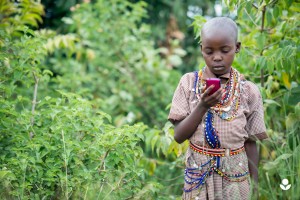Virtual Libraries in Developing Countries
The first article I found tells of one mans efforts to build libraries in developing countries. He created a non-profit society, Room to Read, to carry out this mission. Since its creation, Room to Read has established libraries in many countries, including Cambodia, India, Laos, Nepal, South Africa, Sri Lanka, Vietnam, and Zambia;
http://www.edutopia.org/global-education-libraries-developing-countries
My research led me to what happened in Nigeria surrounding virtual libraries. An initiative to build a virtual library for a Nigerian university began in 2000. The need was identified to stock their libraries with improved and up to date literature, a need that was not being met by paper books. So, conversation began around using ICTs to bring about better education for its students. A major problem they immediately began to debate was who would front the cost of connectivity and access to information electronically. Because this initiative began so long ago I began looking into Nigerian libraries and university institutions to see what progress had been made since this article was written.
http://portal.unesco.org/en/ev.php-URL_ID=2646&URL_DO=DO_TOPIC&URL_SECTION=201.html
I also found an article about the library services offered in rural areas of Nigeria; it mainly suggested that the existence of libraries in Nigeria were hindered due to illiteracy, lack of information and ICT, lack of infrastructure, and poverty. A bookmobile program was introduced in Nigeria in the 60’s however after a successful inception, it did not remain in place for any extended period of time.
http://www.webpages.uidaho.edu/~mbolin/posigha2.htm
In looking for initiatives happening more currently, I came across an organisation called the Elsevier Foundation –a foundation that gives grants to developing nations’ libraries. One of their initiatives is called the “E-Library Training Initiative”. It provides online research skills and training to librarians in Africa, Latin America, and Asia. They in turn take the knowledge they’ve learned from their studies, and bring it back to the professionals and students of their own communities. So far, the Elsevier Foundation has helped these nations gain access to 6500 online journals and databases. To hear about the people it has positively effected, take a look at the video below.
After searching for information about mobile devices specifically, and how these devices can support developing nations, I came across an article about a “mobile reading revolution.” A year long Unesco study of seven developing African countries, found that 62% of their respondents read more because of their mobile phones. Furthermore, the respondents said they read to their children off their mobile devices. The study concluded that reading on ones mobile devices, let to a “promising if still underutilized pathway to text” (Flood, Mobile Reading Revolution). As I became specifically interested in what was happening in Nigeria, I learned that mobile books cost Nigerian citizens on average 1 to 2 cents, while a paperback book cost 1 to 5 dollars. This seems very promising for the education of people in developing countries like Nigeria. Within this article, Unesco cited U.N. data, that claims of the seven billion people living on earth, “more than six billion now have access to a working mobile phone” (Flood, Mobile Reading Revolution). This data was shocking to me as I felt an immediate sense of promise towards the number of people that potentially have access to a medium of which to read.
The above article led me to a partner of Unesco, Worldreader, which aims to bring digital books to citizens around the world. Worldreaders mission is to show people the capacity their cellphone, to act as a digital library. Their goal is to bring digital books to every child, by building on digital platforms and mobile connectivity to make their books available in places where they would not otherwise easily exist.
Of all the research I did, I found Worldreader to be the most promising and forward moving initiative of all. Looking at ones mobile device as a library brimming with literature and information is not only innovative and engaging, it is hopeful and exciting for the future of literacy in ALL nations of the world.
References:
Bernard, Sara. Room to Read: Building Libraries, Schools, and Computer Labs in Developing Countries. http://www.edutopia.org Web. 27 Oct. 2015
Y.Z. Ya’U. Nigerian Virtual Library. http://portal.unesco.org/en/ev.php-URL_ID=2646&URL_DO=DO_TOPIC&URL_SECTION=201.html. Web. 27 Oct. 2015
Flood, Alison. Mobile Reading Revolution. http://www.theguardian.com/books/2014/apr/23/mobile-reading-revolution-unesco-study-phones-africa-subcontinent. Web. 27 Oct. 2015
Worldreader. What We Do. http://www.worldreader.org. Web. 27 Oct. 2015
Worldreader. Girl reading mobile phone. Image. 27 Oct. 2015

